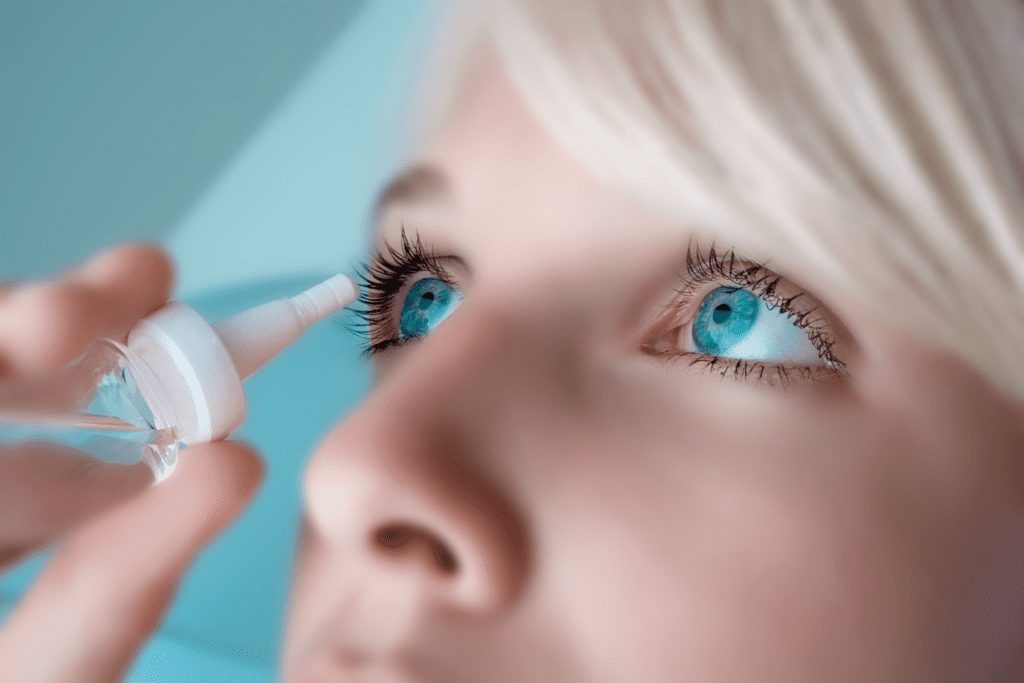
Dilating the eyes and the air puff test maybe two of the least pleasant experiences when you visit the eye doctor.
After dilation, your vision is blurry and your eyes are terribly sensitive to light, but there are actually more benefits to having your eyes dilated than there are side effects. Through dilating your eyes, your optometrist can detect significant issues with your vision and risks for eye diseases.
What is Eye Dilation?
Eye dilation is not painful, but for many patients, it’s uncomfortable. Tropicamide, the solution used to dilate your eyes, forces the pupil to remain open when light shines into your eye which allows the optometrist to see your entire retina, macula and the optic nerve.
During the exam, dilated pupils help your doctor detect diseases and other issues like torn retinas, tumors, diabetic retinopathy, Glaucoma, age-related macular degeneration and cataracts.
What are the side effects of Eye Dilation?
After the drops are administered, your pupils will begin to dilate within a few minutes. You may experience slight to significantly blurry vision and light sensitivity.
Many patients bring sunglasses to wear as they leave the office to avoid the sunlight. Even though many patients’ long-distant vision is not affected, it’s a good idea to have someone available to drive you home in the event your vision is too blurry to do so.
Unfortunately, your doctor can’t tell you how long the dilation will last as it depends on each individual. Generally, we tell our patients to expect the blurriness to last a few hours.
How often should you have your eyes dilated?
The National Eye Institute recommends having a dilated eye exam once every year after age 60. For those who suffer from diabetes or at higher risk for glaucoma, you should begin your dilated eye exams once a year after age 40.
If you are younger in age, you may not need a dilated exam at every visit. In fact, The American Academy of Ophthalmology says everyone should get a baseline exam with dilation when they’re 40 so your doctor can assess any changes that might signal a problem.
If you have concerns about your upcoming eye exam and wish to speak to one of our doctors, contact our office today. Make an appointment for your next eye exam!
